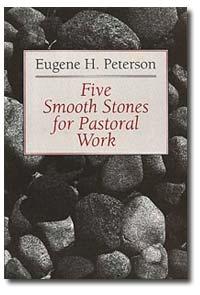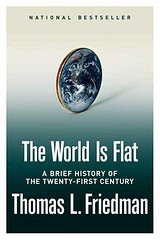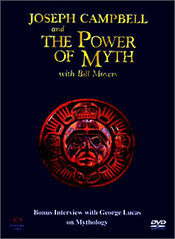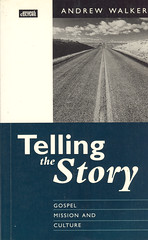Eugene Peterson has a wonderful book entitled Five Smooth Stones for Pastoral Work where he explores the work of pastors in proclaming that Christian metanarrative at the pulpit and then having the challenging task of helping even those who feel excluded from that narrative connect to that larger narrative, which is the history or the story of God's salvation in space and time.

Peterson's book explores how the Megilloth (the five books which form "The Scrolls" in Jewish tradition, the five being Song of Songs, Ruth, Lamentations, Ecclesiastes and Esther) can be fruitfully explored to guide the five critical tasks of pastors: 1)Prayer-directing, 2)story-making, 3)pain sharing, 4)nay-saying and 5) community building.
The announcement in church has usually been clear enough; it is God's will to save every person, to incorporate each created man and woman into the people of God, to graft each private history into the stock of salvation history. But many disqualify themselves, supposing that their individual experience or unique circumstances exempt them from the general truth. Guilt or willfulness or accident makes a loophole, and they assume that what is true for everyone else is not true for them. They are left out. They conclude that they are, somehow, "just not religious" and so unfit to participate in the way of faith. They form negative or neurotic identities, self-understandings unrelated to God's will and love. They feel disorganized; they experience alienation; unable to comprehend their lives as connected narratives that have meaning and make sense. The pastor knows that the story of Gods revelation is a comprehensive narrative that include everyone - how can he provide the insights and incentive to get such persons to understand their own lives as chapters, or at least paragraphs, in the epic narration of God's saving history?
The means by which pastors help the
hoi polloi reconnect to the biblical metanarrative would be through the agency of pastoral visitation and pastoral counselling. As would be expected, a very critical skill involved in
the art of listening, for it is through listening that people reveal their stories, mundane details and all. The pastoral role is to take the details of articulated stories and try to help members make sense of their stories within the larger framework of God's creation/salvation history.
Peterson's choice of the book of Ruth is no accident too. In that story, Ruth is the outcast outside who eventually finds her place in God's salvation history, and it is through the drama of this particular story that Peterson draw's inspiration for this particular pastoral task.
Actually, this chapter raises an interesting question for me: What is the more effective way of helping people to splice their personal narratives into the larger Christian metanarrative? Through the pastoral work of proclaiming the story at the pulpit, or the pastoral work of listening to other stories and helping them to make sense of their story in the light of biblical salvation history? Which has a deeper, more long lasting and transformational effect? Why? What are implications for the educational ministries for churches?






